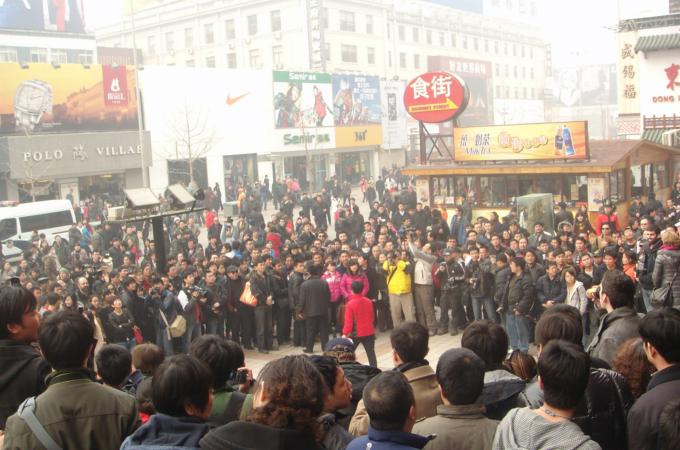The Holy See, China, and evangelization
In a recent interview, Cardinal Pietro Parolin, Secretary of State of the Holy See, suggested that certain critics of a deal between the Vatican and the People's Republic of China were misconstruing the Holy See's motivations: "There are those who've accused us of only wanting diplomatic relations as a sign of some sort of success. But the Holy See, as the pope has said many times, is not interested in diplomatic successes."
It's just possible that, among other things, His Eminence had in mind an online article I published at Foreign Policy.com this past February. There, I argued that the decades-long passion of some Vatican diplomats for securing diplomatic relations with the PRC reflected an outmoded view of the Holy See's role in world affairs, in which the Vatican is imagined to be a third-tier power trying to punch above its weight (as the cardinal secretary of state of Pius VII, Ercole Consalvi, did at the Congress of Vienna in 1815). That is no longer the case, I suggested, for the only real power the Holy See can deploy in 21st-century world politics is the power of moral witness and argument. That moral authority is compromised, and the life of the Church under totalitarian or authoritarian regimes is weakened, when deals are made by the Vatican that concede far too much authority in Church affairs to communist regimes. Which is what happened under the so-called Ostpolitik of Pope Paul VI and Archbishop Agostino Casaroli: a policy of accommodation that led to grave problems for the Church in Hungary and Czechoslovakia and caused unnecessary headaches for the Church in Poland in the 1960s and 1970s, before the Ostpolitik was effectively jettisoned by the most geopolitically consequential pope in centuries, John Paul II.
So the issue here is not an untoward eagerness for diplomatic success; the issue is one of confusing diplomatic accomplishment with evangelical achievement. And that gets me to the oft-repeated nub of my critique of the putative deal between the Vatican and the People's Republic of China: any arrangement by which the Chinese communist authorities are conceded a significant role in the appointment of Catholic bishops will weaken the Church's evangelical possibilities -- today, and especially in the China of the future. Kowtowing to communists is bad for achieving a full reconciliation among the currently divided factions in the Catholic Church in China. But first and foremost, it is bad for mission and evangelization, now and in the future.
I am skeptical of the claim, often heard in Vatican circles, that China will inevitably become the lead power in the world. Yes, China has made enormous strides economically since Deng Xiaoping abandoned Maoist economic madness and unleashed the creativity of the Chinese people. Yes, the Chinese model of efficient authoritarianism is now a serious competitor to democracy. And yes, the communist regime's claim to have restored the Middle Kingdom's dignity after a century of quasi-colonial degradation has significant appeal among Han Chinese (if not among Tibetans and the Uighurs of Xinjiang). But the one-child policy that China brutally enforced for decades has created serious demographic and social problems; there's little in the way of a social safety net for an increasingly elderly Chinese population; and it seems unlikely that today's restraints on free expression in China will be tolerated indefinitely by a rapidly growing middle class.
The communist regime in China is inherently unstable, despite what appears on the surface to be a successful, alternative model of development. Chinese communism will not rule China forever. And when a post-communist China finally opens itself fully to the world, China will become the greatest field of Christian mission since the Europeans came to the western hemisphere in the 16th century.
A Catholicism that has become identified with a discarded communist regime, because the Vatican once conceded the communists a significant role in the Church's internal life, will be at a grave evangelical disadvantage in the post-communist China of the future, where evangelical Protestants and Mormons will be very, very active. And that evangelical concern, I would respectfully remind Cardinal Parolin, has long been the core of my argument against granting the Chinese communist regime a significant role in the choice of bishops.
Or to quote Pope Francis, any such deal would be an impediment to living out the Holy Father's vision of "a Church permanently in mission."
- George Weigel is Distinguished Senior Fellow of the Ethics and Public Policy Center in Washington, D.C.



















